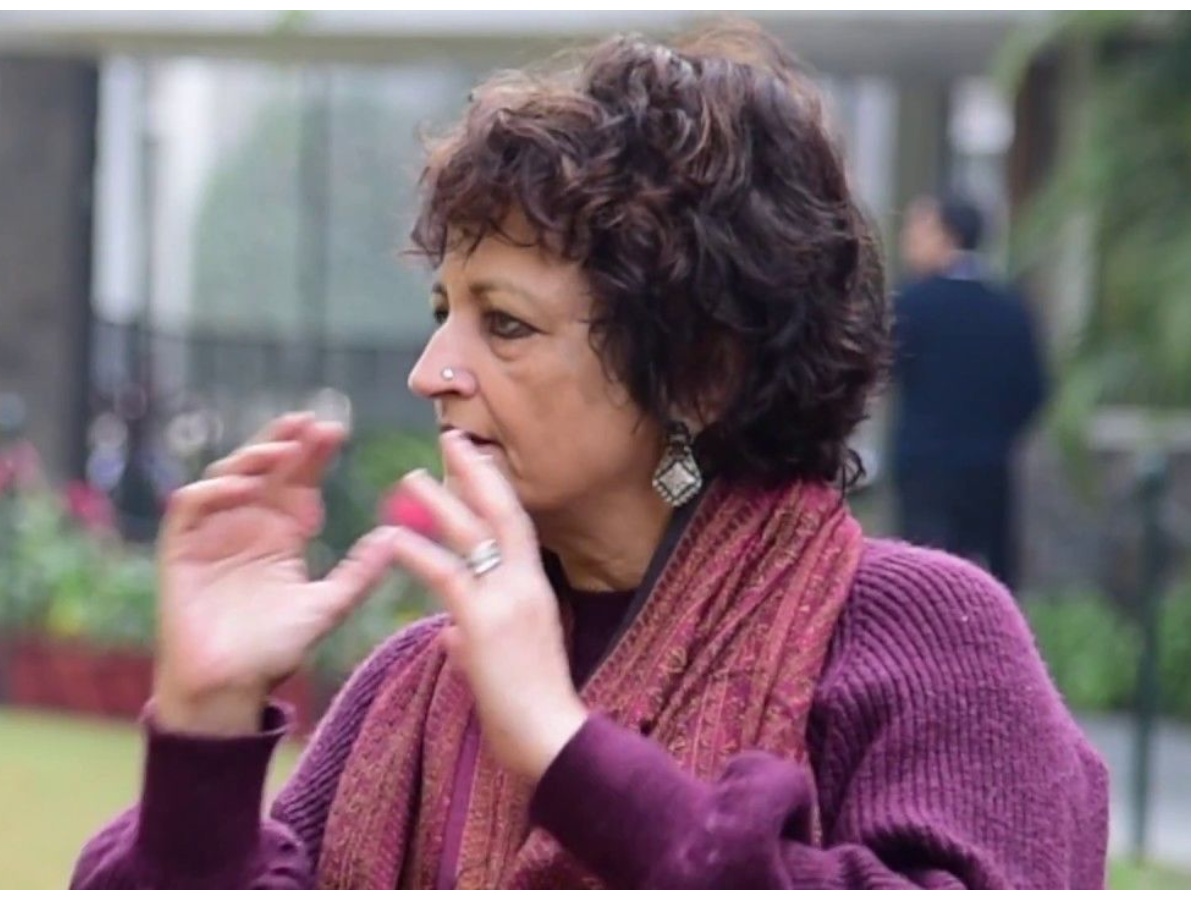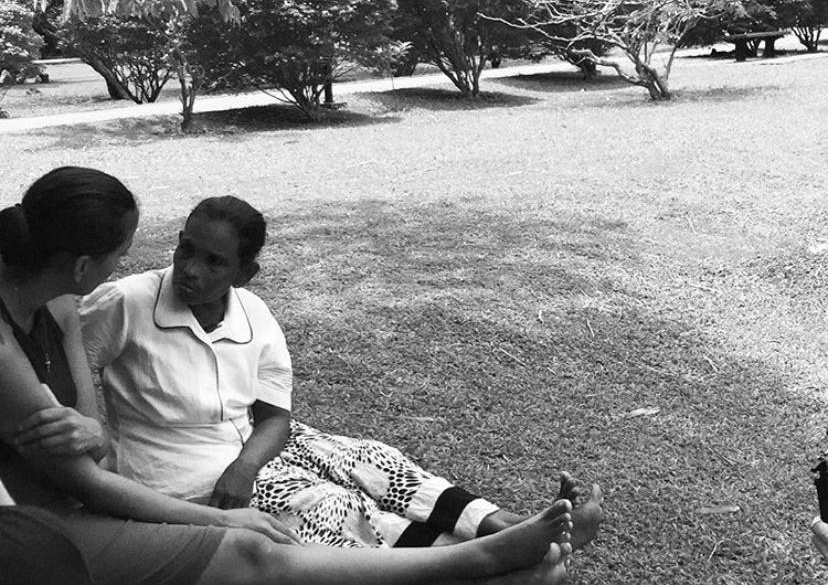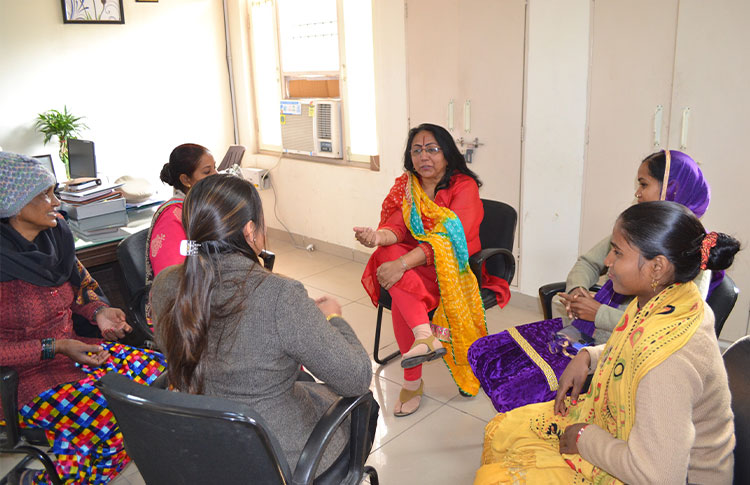A Survivor Herself, Mariya Taher Shares With Us Her Work To End Female Genital Cutting
- IWB Post
- February 6, 2018

“I remember being taken to Bhendi Bazaar in Mumbai, where I saw older women who cut me with a sharp object, and I cried in pain… But what I also remember is that later, I was celebrated for having performed the age-old tradition.”
And that’s how it all began…
Having experienced khatna at the young age of 7, Mariya Taher today advocates towards ending different forms of gender violence, including domestic violence, human trafficking, and Female Genital Cutting.
Mariya has been working on the issues of domestic violence at Asian Women’s Shelter; and Saheli Support, and Friendship for South Asian Women and Families. In a Skype interview, Maria agreed to share with us her story and learning while working with the women in U.S. and South Asia.

When I asked her what emotions she went through when she realized she had undergone a cut, she said, “I wish it hadn’t happened to me, but I think because I did experience it, I have this passion for gender violence issues, that I’m able to be in a place where I can talk about it, I can do research on it … I have an insider’s perspective.”
Mariya Taher: When I experienced it, I was hurt because it was painful but I did not realize as to what had happened to me. Later I baffled myself with the question why my religious community – Dawoodi Bohra, would continue this secret practice. When it happened to me, there was no federal law in the United States against FGC. It wasn’t until 1997 that a law would pass in the U.S.
Me: As you have worked with domestic violence survivors, what are your views on the once trending hashtag: #WhyIStayed?
Mariya Taher: This is one of the most asked questions in working with survivors of domestic violence. There are endless reasons behind why a person stays in an abusive relationship. They might stay for their kids, for immigration status, out of financial needs, etc. Instead of asking the questions of why a person stays, which in itself is a form of victim blaming, meaning the onus of the abuse judgmentally falls onto the person who is experiencing it, the trending hashtag should be #WhyAbuse. We know that domestic violence is about power and control and that person who is abusing holds power and control over another person. On average, it can take a person 7 attempts to successfully leave the relationship. So yes, we should stop victim-blaming and instead focus on why the abuse happening in the first place, because abuse of any form, whether emotional, financial, sexual, physical, should never happen and can never be justified.
Me: How is the struggle of Asian women fighting domestic violence different from those of women in U.S. and how do you deal with it?
Mariya Taher: Domestic violence crosses all ethnicities, cultures, and boundaries. For some communities, there may be additional challenges. For example, working with immigrant communities in the United States, one needs to sensitively and cautiously understand the culture, the language, and the background of the survivor to help them. Then it is important to work with the survivor “where they are at.” Meaning that it is important to understand that a person might not be capable or ready to leave a relationship due to a variety of factors. Or they might want to leave. Or they might just need someone to talk to. Isolation is a huge barrier for survivors of domestic violence. Sometimes all a person might need is to understand that they are not to blame and they are not the only ones going through it.

Me: You have served as a lecturer at the San Francisco State University. Talk about instances of the rape culture on campus and how can that be changed at the grass root level?
Mariya Taher: I may not be the best person to answer this question as I have never worked on the issue amongst youth or at college campuses. I do believe in the last few years that there has been more education and more attempts at building awareness of the need for “informed consent.” I have a few colleagues that work on this issue, and I know that they have tirelessly to try to educate youth around sexual assault, domestic violence, and in general around what a healthy relationship looks like. I do believe that that kind of education also needs a more primary level of school as well. We know that violence is learned behavior, so being able to help children understand the dynamic of a healthy relationship early on could be an important preventative step to ending abuse before it even starts.
Me: You are working with the Massachusetts Women’s Bar Association on passing the state legislation to criminalize FGC. What are the main constraints in passing this legislation?
Mariya Taher: We have to refile the legislation in January. It got caught up in the judiciary committee last year. The positive side in Massachusetts is that a lot of people are aware of this issue. I think one concern on why it didn’t pass last year, which I very much understand, is that because FGC is considered cultural, that passing such legislation could lead to racial profiling or targeting of minority groups here. There is also fear of unintended consequences such breaking up families with this legislation. I definitely understand that, having been born in the U.S. and coming from a minority and from a Muslim family.
At the same time, the legislation needs to be passed because we need to put out the message that it is not acceptable. We need to couple the legislation with community education and awareness, though. Those are key in helping to create social change and end FGC. Another challenge is that people feel that this act should fall under existing child abuse laws, but then comes the question that not all families consider it as child abuse or gender violence.

Me: FGC being a religious, traditional practice, how do you think it can be dealt at a more personal level?
Mariya Taher: Using Grassroots methods is very important because we need to be able to work with the community. We also need to have a multisectoral approach that includes legislation, education, social services, health care services, etc. We need to help build dialogue between these various groups and really take this issue from being considered a private issue to a public one. Similar to the idea of domestic violence – it was once very much considered a private, family matter. In a lot of communities, it still is, however, that is changing, and it is becoming more of a public matter as it needs to be. The same thing must happen to end FGC.
There is also this term in social psychology, pluralistic ignorance, which is the idea members of a community do not want a practice to continue, but they do not speak up because they believe that everyone else in the community wants the practice to continue. In Sahiyo’s work, we have come across many people who do support our work, but who are afraid that if they speak publicly, they will be ostracized from the community for it.
In fact, Sahiyo’s survey found that most people did not want to continue FGC in the community. The full survey report will be available to the public soon.
I wanted to know Mariya more as a person – of who she is beyond her work. So I decided to ask her few odd questions:
Me: If we read your fridge notes, what will we know about you?
Mariya Taher: Hahaha! I think you’ll learn that I am a very easy-to-get-along type. I like to laugh a lot. Also, people think that I am stubborn, but I like it because I feel I am determined. I am a runner, and so I keep going!
Are you a runner-runner? Like literally?
Mariya Taher: Hahaha! Ohh yaa! I run marathons and half marathons.
Me: Your 2016 resolution that you didn’t hold to?
Mariya Taher: I am a writer and I am working on a novel. Something I couldn’t get as far as I wanted to was writing. I have only finished 100 pages.
Me: Message to self in December 2017?
Mariya Taher: Ohh Gosh! I guess I would want more clarity by December 2017 regarding everything in life!
{Clarity: I guess I have been trying to get that clarity forever, year after year!}
Me: Your biggest ambition for 2017?
Mariya Taher: My completion of the first draft of my novel is my biggest ambition.
Mariya Taher: Ummm, I like fiction so much that I can’t just choose the one. But yes the one I am reading now is ‘Jump The Sun, ‘ and I really like it so far.
This article was first published on December 22, 2016.
- 0
- 0












